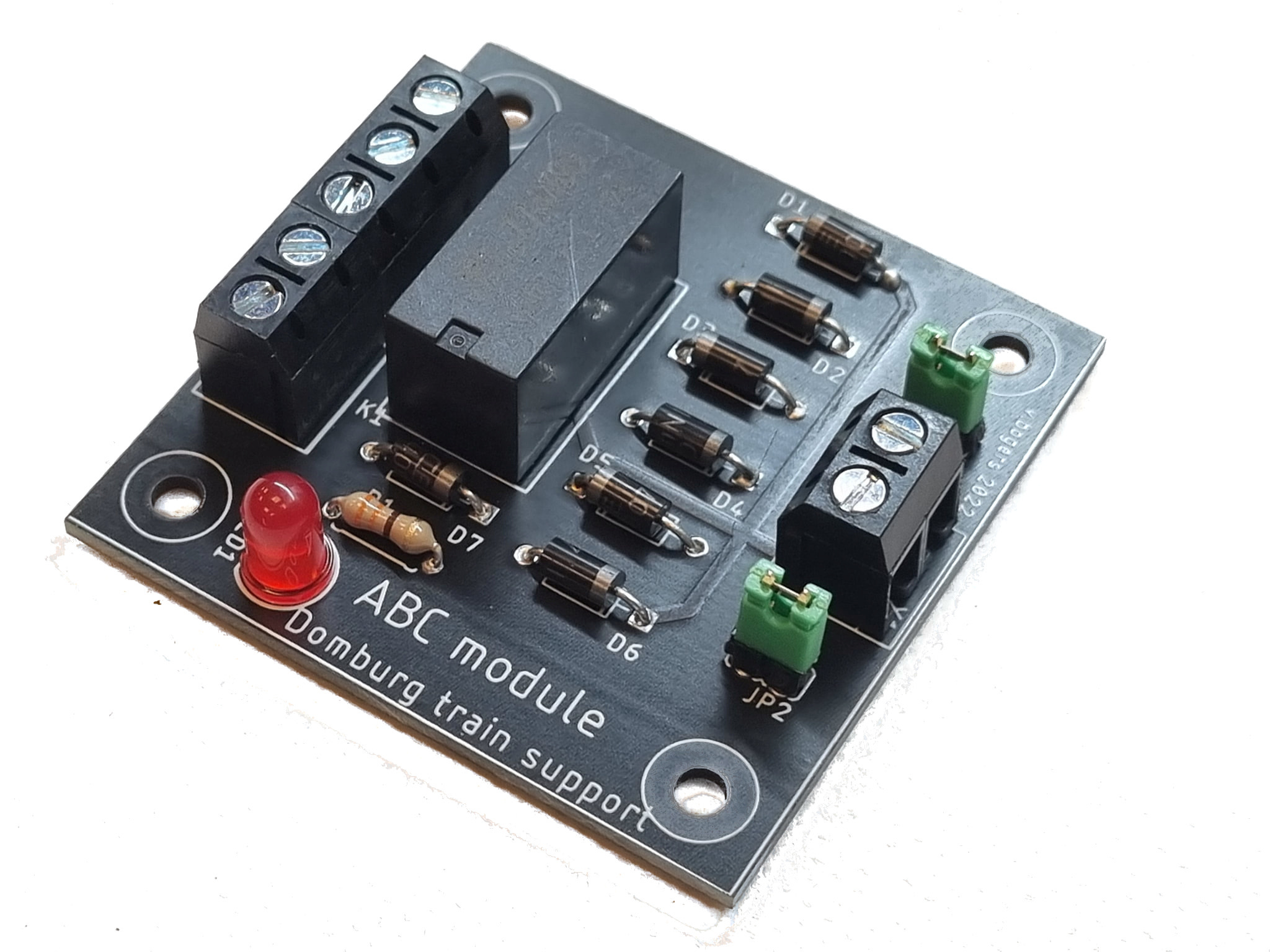







The DTS ABC Module is our answer to the growing demand for semi-automation without a computer. By applying diode braking technology, also known as ABC, it is possible to stop a train in a natural way for a red signal, turnout or platform.
By feeding a section of the layout via the ABC module, an unequal square wave DC voltage (asymmetrical DCC signal) is applied to that section. Almost every decoder can recognise this and will stop the locomotive at the internally set braking delay (CV 4).
The module contains a relay which can be activated by a button, position of signal or points, or a decoder. When activated it bridges the diode circuit and the locomotive receives the usual equal square wave direct voltage (symmetrical DCC signal) again. Then the locomotive will start up again at its internally set acceleration delay (CV 3).
Besides installing the module you only have to activate the ABC technique in the locomotive decoder. In most cases this is indicated in CV 27, which you have to program to a value of 1, 2 or 3. Which value this is, depends on the brand of decoder you use.
In addition to the standard technology, we have built a few extra features into the module:
Variable voltage drop:
There is a lot of uncertainty whether the technology works well with 3, 4 or 5 diodes in series. We leave that choice up to you to discover. By means of 2 jumpers on the PCB you can set the desired voltage drop yourself.
With 3 diodes the voltage drop is 2.1V. Jumper 1 placed
With 4 diodes the voltage drop is 2,8V. Jumper 1 not placed, Jumper 2 placed.
With 5 diodes the voltage drop is 3.5V. Jumper 1 and 2 not fitted
Switch contacts:
On the board we provide a change-over contact that switches with the position of the relay. This is useful to start other actions, de-energise sections or switch points and signals.
Technical information
We have chosen to offer 2 variants:
ABC Module 1A
Suitable for Z, N and TT scales.
It contains 1N4007 diodes capable of delivering 1 Amp.
Relay voltage: 12VDC. Mind the polarity! V+ is on the left, V0 on the right.
Number of change-over contacts: 1x changeover (COM/NO/NC)
ABC Module 3A
Suitable for all scales
This module contains 1N5408 diodes that are suitable to supply 3 Amps.
Relay voltage: 12VDC. Mind the polarity! V+ on the left, V0 on the right.
Number of change-over contacts: 1x changeover (COM/NO/NC)
Disclaimer:
If you use an old central unit like an Intellibox or Roco Booster, please use the ABC Module 3A.
The 1N4007 diodes of the ABC Module 1A can handle a 30A short circuit with a time of 8.3 ms. Old power stations switch off too late and then the diodes can be damaged.
If you have a modern control unit, it will detect the short circuit before the diodes are affected.
Click here for the wiring diagram
Maak uw aankoop compleet